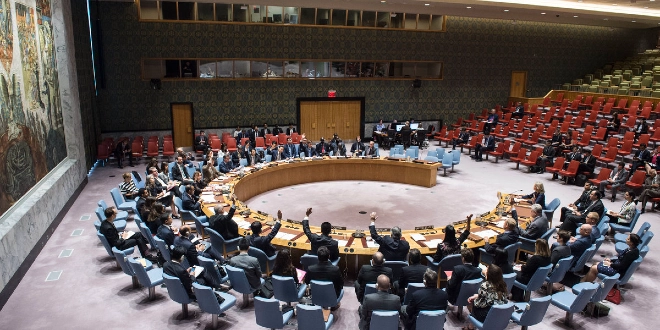Ireland’s traditional “triple lock” mechanism requires three approvals before deploying more than 12 Defence Forces personnel overseas: authorization from the United Nations Security Council (UNSC), approval by the Government, and endorsement by Dáil Éireann.
However, the Government is proposing to amend this mechanism by removing the necessity for UNSC authorization. Tánaiste and Minister for Defence Simon Harris is set to present draft legislation to the Cabinet on Tuesday to effect this change. He argues that Ireland’s commitment to peacekeeping should not be hindered by potential deadlocks within the UN, emphasizing that decisions on such missions should rest with the Cabinet and the Dáil, while still considering the UN Charter during deliberations.
Harris contends that it is inappropriate for any of the five permanent UNSC members, including Russia, to have veto power over Ireland’s participation in peacekeeping operations. He notes that no new peacekeeping missions have been authorized by the UNSC since 2014, suggesting that this veto power requires reevaluation, potentially through enhanced regional cooperation with EU member states. citeturn0search22
When questioned about the possibility of Irish troops joining a future peacekeeping mission in Ukraine, Harris indicated that under current regulations, the Government would effectively need to seek Russian consent, a situation he described as “bizarre.” He believes Ireland cannot simply “recuse” itself from participating in such missions.
Presently, the triple lock permits the deployment of up to 12 Defence Forces members overseas without triggering its requirements. Harris proposes increasing this number to 50, citing the need for agility in situations where Irish citizens require evacuation from dangerous environments, as was the case recently in Afghanistan and Sudan.
He emphasizes that these proposed changes do not affect Ireland’s stance on military neutrality, affirming that the country remains opposed to joining any military alliances.
Opposition parties have expressed concerns regarding this proposal. Social Democrats TD Sinéad Gibney describes the move to dismantle the triple lock as an attack on Ireland’s neutrality, considering it a retrograde step that effectively reduces the mechanism to a single lock. She acknowledges issues with UNSC vetoes but highlights the legitimacy a UN mandate provides to peacekeeping missions, which she believes is irreplaceable. Gibney fears that this change could lead to Irish troops being assigned to NATO or EU missions without sufficient oversight regarding their nature and purpose.
Similarly, Labour Party spokesperson on Defence, Duncan Smith, expresses concern over the proposed amendments, noting that the triple lock has been a cornerstone of Ireland’s foreign policy. He calls for cross-party discussions to ensure the protection of Ireland’s neutrality, cautioning against the removal of the triple lock as an unnecessary first step.
The debate over the triple lock mechanism reflects broader discussions about Ireland’s foreign policy, military neutrality, and the balance between national sovereignty and international cooperation in peacekeeping efforts.
 The Daily Star Ireland
The Daily Star Ireland

